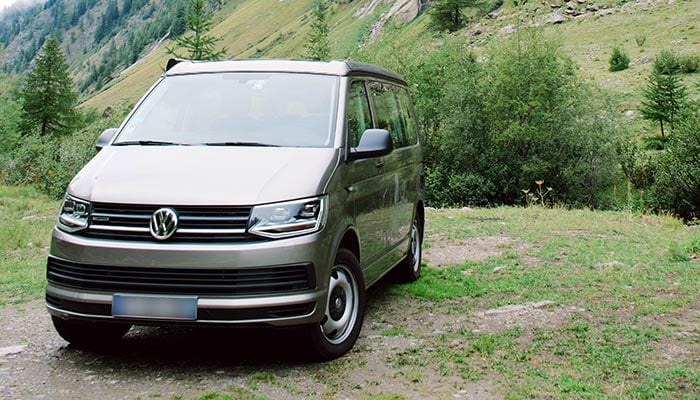Why Hire a Guide?
- support car: For long and hilly tours, we provide an eight-seat support car and driver to transport your party and your bikes if you get tired or want to skip uphill segments. This enables you to enjoy and complete any tour we offer, regardless of your level of fitness or the difficulty of the course.

- suitable bikes: In the Mt Fuji area and throughout Japan, most of the bikes available in rental shops are size S. It can be hard to find size M bikes for rent. Sizes L and XL are almost unheard of. Road bikes are also rare in rental shops.
Our fleet of bikes, on the other hand, includes road bikes and hybrid bikes in a wide range of sizes to suit everyone from preteen children to extremely tall adults, so you can ride in comfort on a bike that suits you. We maintain our bikes in much better condition than those in rental shops, and most of them are like new.
- snacks and bottled water: The support car or your guide brings along the light snacks and bottled water needed to keep you energized and hydrated for the duration of your tour so you don't have to carry the considerable extra weight.
- safe storage of small valuables and heavy items: If you need to bring valuable or heavy personal items (such as cameras and laptops) with you on the day of your tour, you can leave them for safe keeping in the support car so you don't have to carry them while biking or hiking. (Note that space in the car is limited, and it may not be possible to accommodate large or numerous pieces of luggage. Lockers appropriate for storage of luggage are available at or near locations where our tours start).
- local insights: Often, the routes that offer the most outstanding views and attractions, along with the best opportunities to learn about Japanese society, culture and history, can only be discovered and experienced fully with the help of a local guide. Our guides can offer fascinating insights into the ancient sites, shrines and rituals, artwork, plants, animals and geological features you'll encounter on our tours so you can understand what you see.
Plus, some of the most enjoyable cycling and hiking routes we can share with you aren't documented on maps or in guidebooks. We can also suggest the routes that're most compatible with your interests and level of fitness.
Finally, for those motivated to help restore and protect the environment through our nature conservation tours, our guides know where your help will make the biggest difference.
- navigation: Mount Fuji, Hakone, the Fuji Five Lakes, Koshu and Izu are relatively remote countryside areas that are much more difficult to find your way around than Japan's cities. Many roads in these areas have few signposts to guide the way. Some key intersections only have signs in Japanese and fail to direct visitors to special attractions in the nearby countryside. Published maps display too little detail to rely on as primary navigation tools. In short, it's easy to get lost or miss some of the best spots without an experienced local guide.
- bike repair skills: Mechanical problems beyond flat tires are always possible on a long ride. When touring remote areas like the countryside around Mount Fuji, a breakdown can leave an unprepared rider stranded far from a repair shop, unable to continue their trip. Our guides are experienced in roadside bike repair. If a problem occurs with your bike, they can enable you to resume your tour as quickly as possible.
- supplies: For long and hilly bike tours and bike and hike tours, our support car brings supplies that may be needed in case of unexpected problems, such as bike repair equipment, a first aid kit and extra food and water. This saves you the inconvenience of bringing or buying these items and carrying them during your trip.
- road, trail and bike path conditions: Hazards can occur in unexpected locations on bike paths, hiking trails and roads. Weather events can bring down trees, cause landslides that block routes and leave an invisible sheet of ice on mountain roads, even on sunny days. Our guides keep tabs on bike path, trail and road conditions and know when to select alternate routes for safety.
- local road rules: Laws about cycling in Japan are different from in other countries in unexpected, counterintuitive ways. For example, cyclists must usually follow the same traffic rules as cars, except in certain situations when they're required to act as if they're pedestrians. These idiosyncracies aren't well documented in English on the internet. Our guides are experienced with cycling in Japan and will help you comply with Japanese road rules and avoid causing an accident.
- wildlife: We're familiar with local wildlife that could pose problems, and we know how to greatly reduce the chance of unpleasant encounters.
- emergency phone: We carry mobile phones and can precisely explain locations on roads, hiking trails and bike paths in the Japanese language to speed the arrival of help in case a problem occurs.
- environmental conservation: We have a passion not only for sharing the beauty of Japan with others but also for preserving it. Our guides convey to visitors how important it is that they leave the land free of litter and make it more convenient for them to do so by bringing along a garbage bag and taking responsibility for properly sorting, recycling and disposing of trash collected on the tour.
Find out more about what our guides are like
here.
